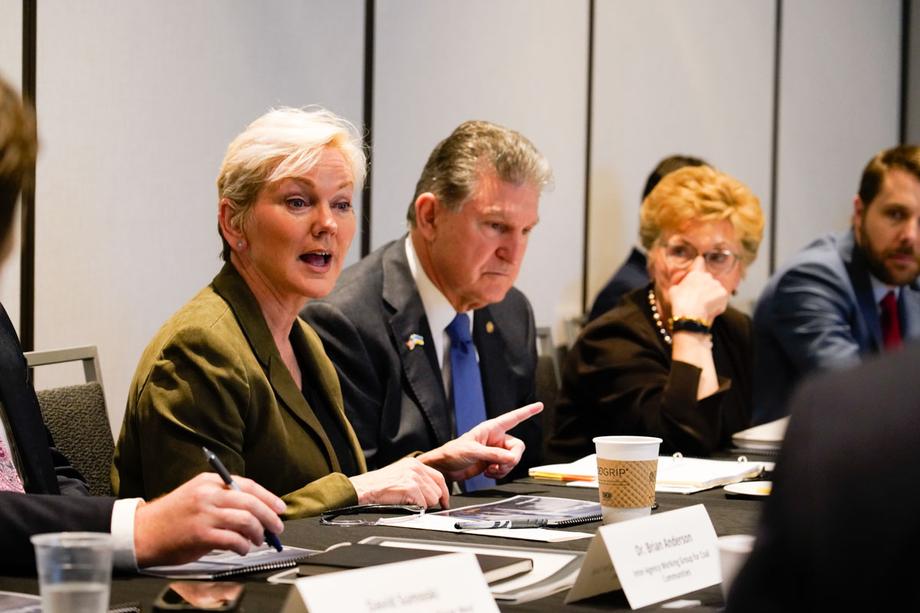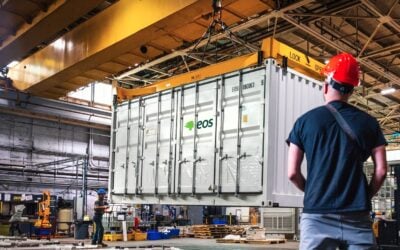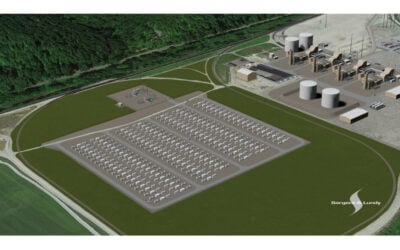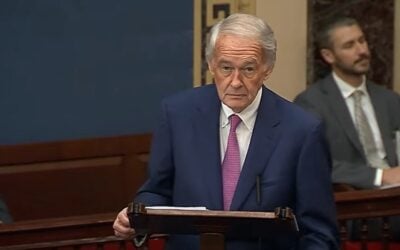
Hopes have been raised once again that US lawmakers could introduce an investment tax credit (ITC) for energy storage.
The US Build Back Better Act may have floundered, but the man blocking that, US Senator Joe Manchin, is backing the Inflation Reduction Act, legislation that includes climate mitigation and clean energy promoting measures.
Enjoy 12 months of exclusive analysis
- Regular insight and analysis of the industry’s biggest developments
- In-depth interviews with the industry’s leading figures
- Annual digital subscription to the PV Tech Power journal
- Discounts on Solar Media’s portfolio of events, in-person and virtual
The tale of Manchin’s opposition to Build Back Better is long and has been told many times over by now. The new twist is that he and Senate Majority Leader Chuck Schumer have reached an agreement instead on the Inflation Reduction Act.
Key to the West Virginia Democratic Senator’s change of stance on the act versus BBB – at least in Manchin’s own words – is that the Inflation Reduction Act focuses more on tax incentives rather than spending.
It will also be paid for by introducing a 15% minimum corporation tax rate and strengthening the IRS, with House Speaker Nancy Pelosi describing Manchin and Schumer’s agreement on the bill as a “breakthrough” that retains many of the key tenets of President Biden’s proposals.
“Rather than risking more inflation with trillions in new spending, this bill will cut the inflation taxes Americans are paying, lower the cost of health insurance and prescription drugs, and ensure our country invests in the energy security and climate change solutions we need to remain a global superpower through innovation rather than elimination,” Manchin said in a statement yesterday.
The act also aims to cut the US deficit by more than US$300 billion while enabling a US$369 billion boost to energy security and action on the climate crisis at the same time.
To quickly cut to the chase, for energy storage this brings the very welcome news that the investment tax credit (ITC) for standalone energy storage is included in the act, as it was in BBB.
The ITC, which is already applied to solar PV plants and to solar-plus-storage, has been described as a measure that would turbocharge the already rapidly growing energy storage market in the US.
It’s something the industry and clean energy advocates have pushed for, for several years, and would enable an immediate reduction in the capital cost of energy storage projects by something like 30%. According to analysis group Wood Mackenzie Power & Renewables the ITC, especially one with a direct-pay option that simplifies how it is monetised, could boost storage deployments by a quarter.
In addition to introducing tax credits for storage, existing tax credits on other clean energy tech like solar PV would get a 10-year extension, while around US$30 billion in loan and grant programmes would be available for states and utilities to “accelerate the transition to clean electricity,” according to a document summarising the act’s provisions.
While it’s a case of wait-and-see whether the act gets approval across the Democratic Party and then begins its arduous path to becoming law, meaning that what’s included at this stage cannot be taken for granted, the act also includes support for US-based manufacturing of technologies including batteries and for the transition to low-emissions vehicles.
Act welcomed but it’s a case of wait-and-see for industry
Jason Burwen, formerly acting CEO of the national Energy Storage Association (ESA), now VP for energy storage at the American Clean Power Association (which merged at the beginning of this year with the ESA), welcomed the act.
“Wow. The Inflation Reduction Act is a powerful US battery #energystorage supply chain strategy,” Burwen tweeted.
“Demand-drivers in #storageITC & EV tax credit adder for domestic batteries, supply-drivers in 10% PTC (production tax credit) for active electrode materials and US$35/kWh PTC for battery cell manufacturing.”
Burwen also noted that the act also includes thermal energy storage, which had been included in the Green New Deal but left out of Build Back Better, that utilities will be able to opt out of normalisation of ITCs for energy storage projects bigger than 500kW and that energy storage is explicitly included in the ITC adder for low-income community projects.
That said, various sources in the industry indicated that they won’t be holding their breath on the act passing just yet.
One said it was the beginning of another “rollercoaster” of policy ins and outs, another said they would believe it was happening only when Biden signed it into law, while another still said they expected a fairly long wait for that to happen either way.
President Biden himself described the act as “the action the American people have been waiting for,” from its aims to tackle high healthcare costs and inflation as well as investing in energy security for the future.
“If enacted, this legislation will be historic, and I urge the Senate to move on this bill as soon as possible, and for the House to follow as well,” Biden said.
Our sister site PV Tech also covered the news today, focusing on the provisions to support US solar manufacturing and other related topics.
This article has been amended to reflect that Joe Manchin is a Senator in West Virginia, not Virginia as originally stated.






